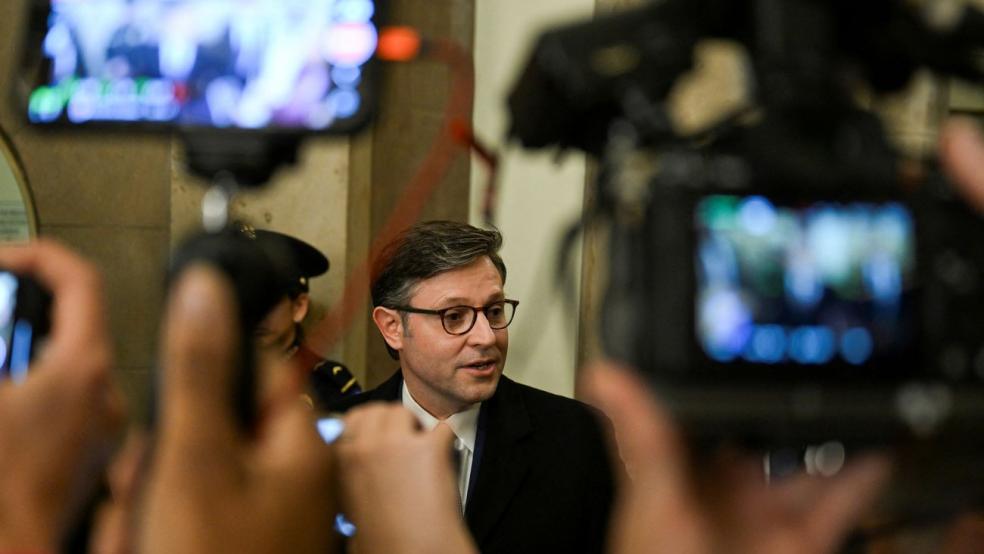With President-elect Donald Trump set to take office in two weeks, Republican leaders are speeding ahead with plans to quickly enact their sweeping agenda. Just how they hope to accomplish it — whether in one massive bill or two separate ones — is still up in the air as Republican factions jockey for their preferred approach.
Speaker Mike Johnson told House Republicans at a planning retreat over the weekend that Trump wants to roll his border changes, energy policy and tax cuts into one huge package to be passed via the budget reconciliation process. Johnson said in a Fox News interview on Sunday that he envisions getting the package through the House by early April, or by Memorial Day at the latest, and that he wants the bill to also address the debt ceiling, which likely needs to be raised or suspended by sometime in June, if not sooner.
Trump endorsed the idea of “one powerful Bill” in a social media post on Sunday in which he said that tariffs would help cover the costs. “Republicans must unite, and quickly deliver these Historic Victories for the American People,” he wrote. “Get smart, tough, and send the Bill to my desk to sign as soon as possible.”
The single-bill approach preferred by Johnson would represent a shift from a two-step strategy that Senate Majority Leader John Thune and other Republican leaders had been planning. That would involve passing a border and energy package first and leaving the tax cuts for a second reconciliation bill. The idea would be to secure a key win for the new administration within its first weeks while buying time for the House GOP to rebuild its majority after the departure of two members who are leaving to work for Trump.
On the other side, Rep. Jason Smith, the Republican chairman of the tax-writing House Ways and Means Committee, has pushed for one bill, arguing that, despite the challenges involved, it would be the best way to ensure that the 2017 tax cuts do not expire at the end of the year as currently scheduled. The border and energy elements of the plan could also help bridge intraparty divides on taxes and revenues, securing necessary votes that might otherwise be in question. Smith insisted Monday that Republicans had settled on the single-bill approach.
Yet Trump and Johnson both suggested Monday that they remain open to the two-bill idea.
"While I favor one bill, I also want to get everything passed. And you know, there are some people that don't necessarily agree with it," Trump told talk show host Hugh Hewitt Monday morning, according to Politico. Trump acknowledged that a single bill would take longer, though he reportedly said he could “live with” that and it would be “cleaner” that way.
Johnson similarly left the door ajar. “Some people like the one-bill strategy, some people like the two-bill strategy. We will work that out. I’m in dialogue this morning with Sen. Thune, and the two houses will get together and we’ll get it done,” he told reporters.
Thune also signaled that no final decision has been reached. “We're working through all that,” he said. “The process issues to me are a lot less important than the results."
Whether they pursue one bill or two, Republicans may still face a host of challenges in pushing through their plans. Some elements of their agenda may not fit within the narrow rules governing the use of the reconciliation process, which is limited to changes in spending, revenues and the debt limit and can’t raise the deficit beyond the 10-year budget window.
Thune has also pledged to keep the Senate filibuster in place, and he has reportedly indicated that he would oppose any effort to overrule the Senate parliamentarian on what qualifies for inclusion under the reconciliation process.





